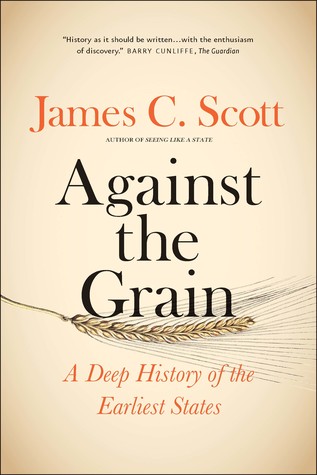
A fascinating book about how humanity went from being entirely comprised of peoples who were organized in relatively small, mobile groups who met their needs via a bunch of different practices generalized as “hunting and foraging,” through the beginnings of sedentary living, agriculture, and the eventual formation of states. To the extent that we think about it at all, the popular narrative of that transition portrays it as inevitable, unilinear, smooth, and purely a story of progress. I won’t go through it in detail, but Scott makes a compelling case that the adoption of sedentary agriculture and especially the downstream emergence of the state form were, in fact, contested, uneven, and not experienced as ‘progress’ by a lot of ordinary people.
Scott is a scholar whose work is largely about states and non-state people, but he’s a political scientist and not a historian. He stumbled into writing this book after he started reading some of the specialist literature from ancient historians and archaeologists about this period, and he realized that a lot of what had been discovered about it in the last few decades demonstrated that the popular narrative is completely wrong. The book is a scholarly but quite readable synthesis of that work, and it also draws some carefully argued yet provocative conclusions of its own. The book doesn’t only talk about this area, but it focuses most heavily on Mesopotamia – the settlements there were not even close to the earliest around the world, but that is where states first formed. The title of the book comes from the observation that early states exclusively formed when there was a settled agricultural community organized around a crop that could be easily controlled and taxed by a central authority – almost always grain crops. Along with being quite reliant on forced labour of various kinds, early states were fragile social forms that regularly ceased to exist for a wide range of reasons, and there is plenty of evidence that many millions of people over the millennia, when given the choice between sedentary state-based living and more mobile non-state living, have seen the latter as a better deal.
Really, really interesting stuff, and an important read to understand some of the key early steps that have led to the world we know today.
Originally posted by Scott on Goodreads.